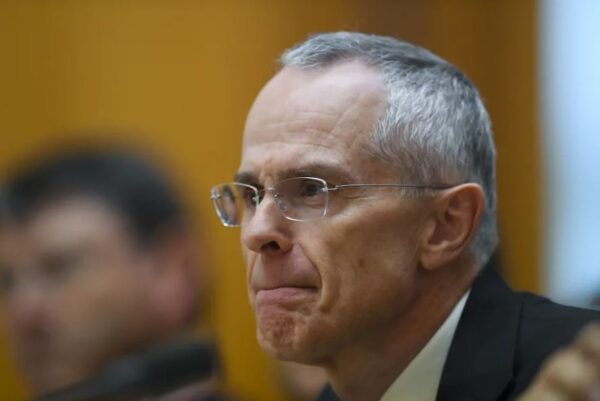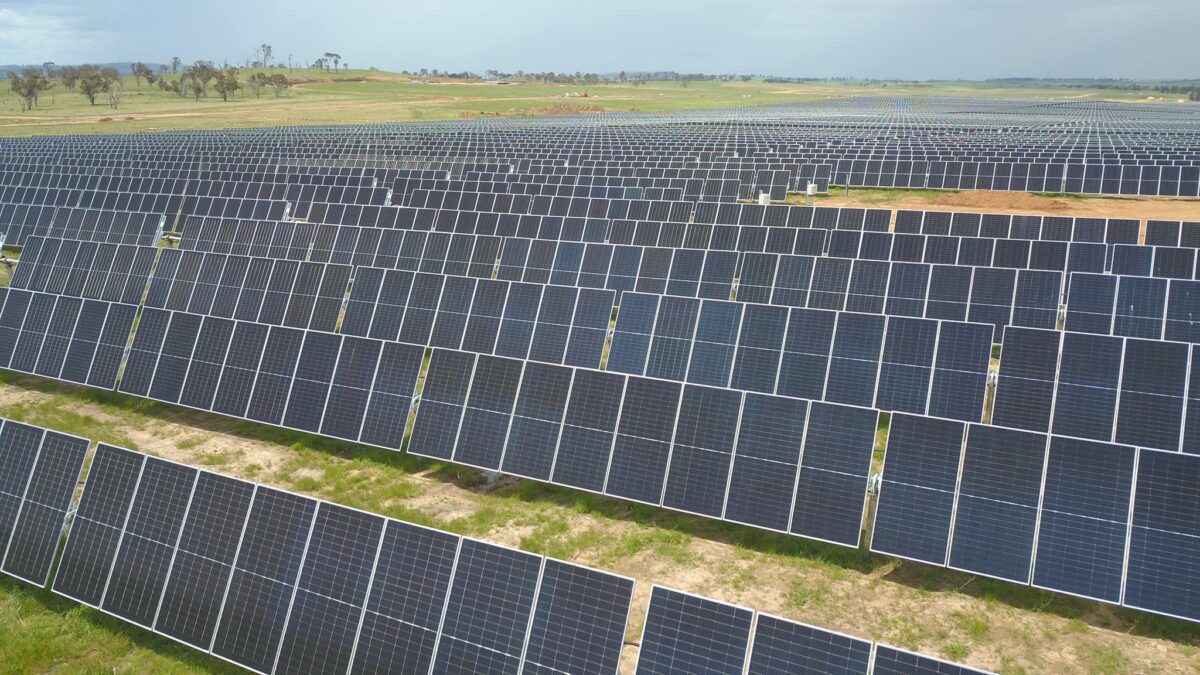Former competition watchdog chief Rod Sims believes Australia can become a clean energy giant by using its world-class wind and solar resources, abundance of electrification metals and minerals and land to grab an outsized share of the economic boom presented by the global push towards decarbonisation.
Sims, who chairs the new Superpower Institute founded by economist and energy expert Ross Garnaut, said if Australia seizes the “once-in-a-century economic opportunity” offered by the world’s transition to net-zero emissions it can repeat the experience of the China resources boom that peaked about 10 years ago.
“But this time the opportunity can be sustained for some decades – rather than boom and bust – and we can manage it better for productivity and broadly based development,” he said.
Speaking at the inaugural South Australian Industry Climate Change Conference in Adelaide on Friday, Sims said Australia can have more employment and higher incomes in the relatively short term, and be much richer in the longer term, by moving early and decisively away from a carbon-based economy.
“Not only is the transition consistent with a rising standard of living for Australians, it is perhaps also necessary for this to be achieved,” he said.
Sims said Australia has the world’s best combination of wind and solar energy resources, and among the largest resources of the minerals needed in the energy transition and Australian governments and industries should be wasting no time in adopting renewable energy technologies that are ready for commercial deployment, including green hydrogen, because the potential dividends are enormous.
“The logic is simple,” he said. “The world is moving to a zero-emissions economy – albeit at an uncertain speed – and we can have the lowest cost zero-emissions electricity available for large-scale economic development in the world.”

Image: University of Melbourne
Sims, the former commissioner of the Australian Competition & Consumer Commission (ACCC), said that by moving quickly Australia could decarbonise 8% of the world’s emissions – not just the 1% of the global total produced domestically.
“Australia’s advantages relative to the rest of the world are so significant that their large-scale utilisation would materially improve the prospects of achieving the world’s climate objectives,” he said.
“Australia covers about 5% of the Earth’s land surface, supplying about 8% of the world’s renewable energy is no stretch given our abundant solar, wind and land resources.”
The Superpower Institute was officially launched in Adelaide on Friday with Sims saying it has been established to change the narrative of the clean energy transition and ensure it is at the heart of economic thinking and industry.
“I am disappointed when I too often see discussion of the economy separate from discussion of the energy superpower transition,” Sims said. “This is strange. Dealing with the fundamental change that the transition to a zero-emissions economy requires should no longer be a side issue or, worse, an issue concerning the costs and difficulties involved in dealing with climate change.”
“The discussion must increasingly focus on the huge opportunities for Australia and how to realise them.”
“My modest aim is to see that all future discussion of the economy has at its centre the energy superpower transition.”
Sims said the Superpower Institute is already up and running and will focus on providing practical research and policy to help governments and industry realise the economic opportunities generated by the clean energy transition.
Initial funding has been secured for projects to use satellites to monitor methane emissions from gas pipelines and to ramp up the OpenNEM project, which publishes data on the National Electricity Market.
This content is protected by copyright and may not be reused. If you want to cooperate with us and would like to reuse some of our content, please contact: editors@pv-magazine.com.









By submitting this form you agree to pv magazine using your data for the purposes of publishing your comment.
Your personal data will only be disclosed or otherwise transmitted to third parties for the purposes of spam filtering or if this is necessary for technical maintenance of the website. Any other transfer to third parties will not take place unless this is justified on the basis of applicable data protection regulations or if pv magazine is legally obliged to do so.
You may revoke this consent at any time with effect for the future, in which case your personal data will be deleted immediately. Otherwise, your data will be deleted if pv magazine has processed your request or the purpose of data storage is fulfilled.
Further information on data privacy can be found in our Data Protection Policy.